Trusting the process
How cutting-edge research is enriching engagement with the National Trust

The National Trust is responsible for one of the world’s largest art and heritage collections, with over a million objects housed in over 200 locations across the UK.
Here’s how an innovative partnership with the University of Oxford is helping bring new light to the Trust’s historic properties, landscapes and collections by connecting it with cutting-edge research.
An award-winning collaboration between the University of Oxford and the National Trust, the National Trust Partnership is aimed at creating new opportunities for interdisciplinary research, knowledge exchange, public engagement with research, and training at both institutions and beyond.
The partnership is founded upon mutual benefit and two-way knowledge exchange. It facilitates new research into the National Trust’s rich portfolio of places and collections, which in turn is embedded into public-facing programmes. Meanwhile, researchers benefit from access to the National Trust’s buildings, collections, and landscapes, alongside opportunities to learn from the organisation’s staff, engage with its vast public audiences, and develop further research projects.
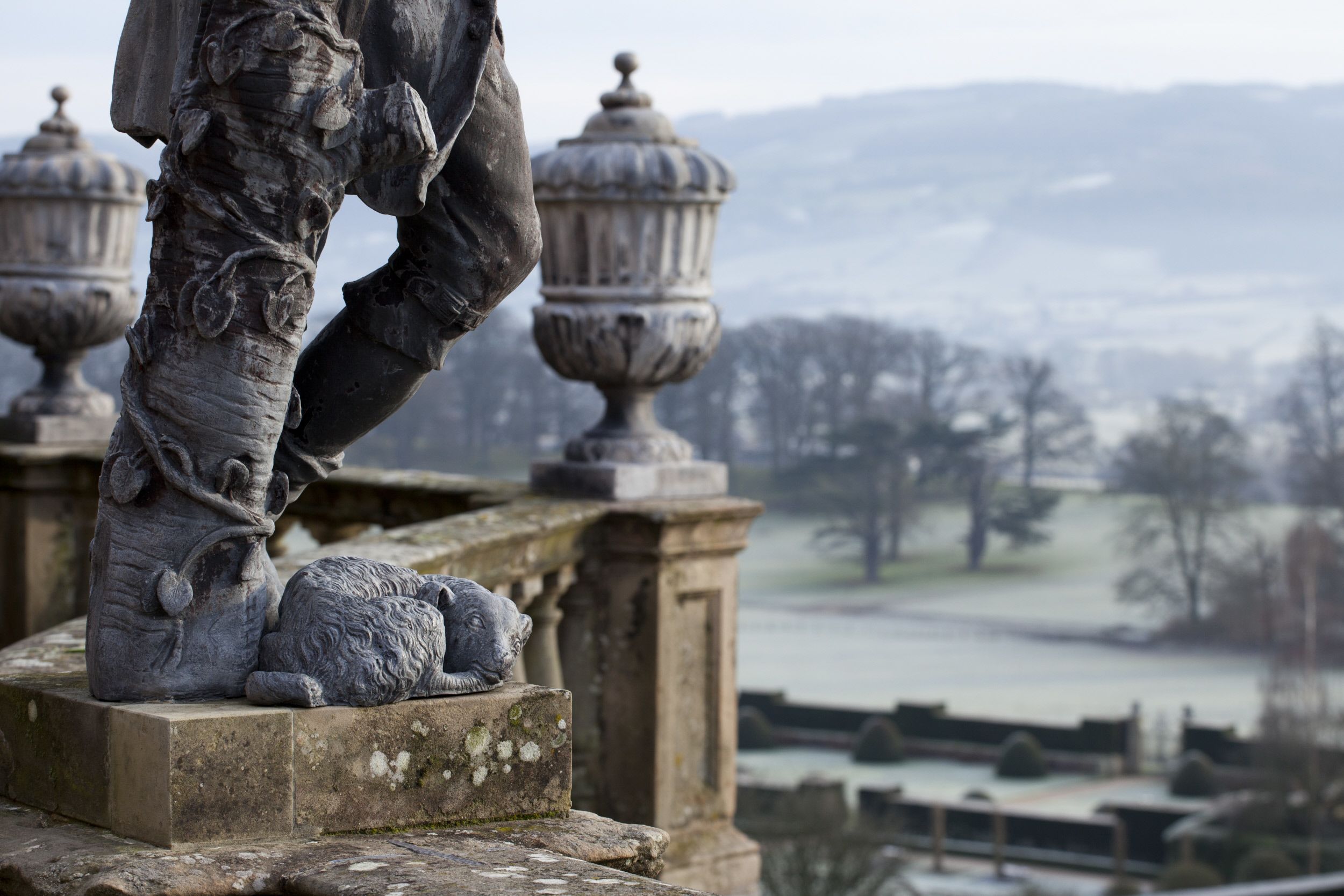
The partnership team is based at Oxford University, led by Alice Purkiss. ‘New research helps enrich people’s engagement with the National Trust,’ Purkiss explains. ‘It might lead to a surprising intervention or a completely new narrative that hasn’t previously been told at that site before.
"The charity’s places are sites of transience, they have deep and varied histories, but when you visit you might only encounter one story. The new research our collaboration supports helps unlock and deepen knowledge to provide more authentic and engaging experiences for visitors, staff and researchers alike."
With the focus on a set of shared research themes, activities include research placements and consultancy, conferences, theme development workshops, public lectures and events, PhD projects, student internships and staff training.
Activity on individual themes is often incremental. It might start with a workshop between National Trust staff and Oxford researchers, become the focus of a fellowship or student internship placement, then go on to become a large, joint research bid for external funding.
Themes are varied and interdisciplinary and therefore relevant to a wide range of staff and researchers across both institutions: from life writing, photography and histories of childhood, to global botanic collections and concepts of authenticity in historic houses, to name a few.
Helping the National Trust uncover new narratives - 101 Jobs that Change the World
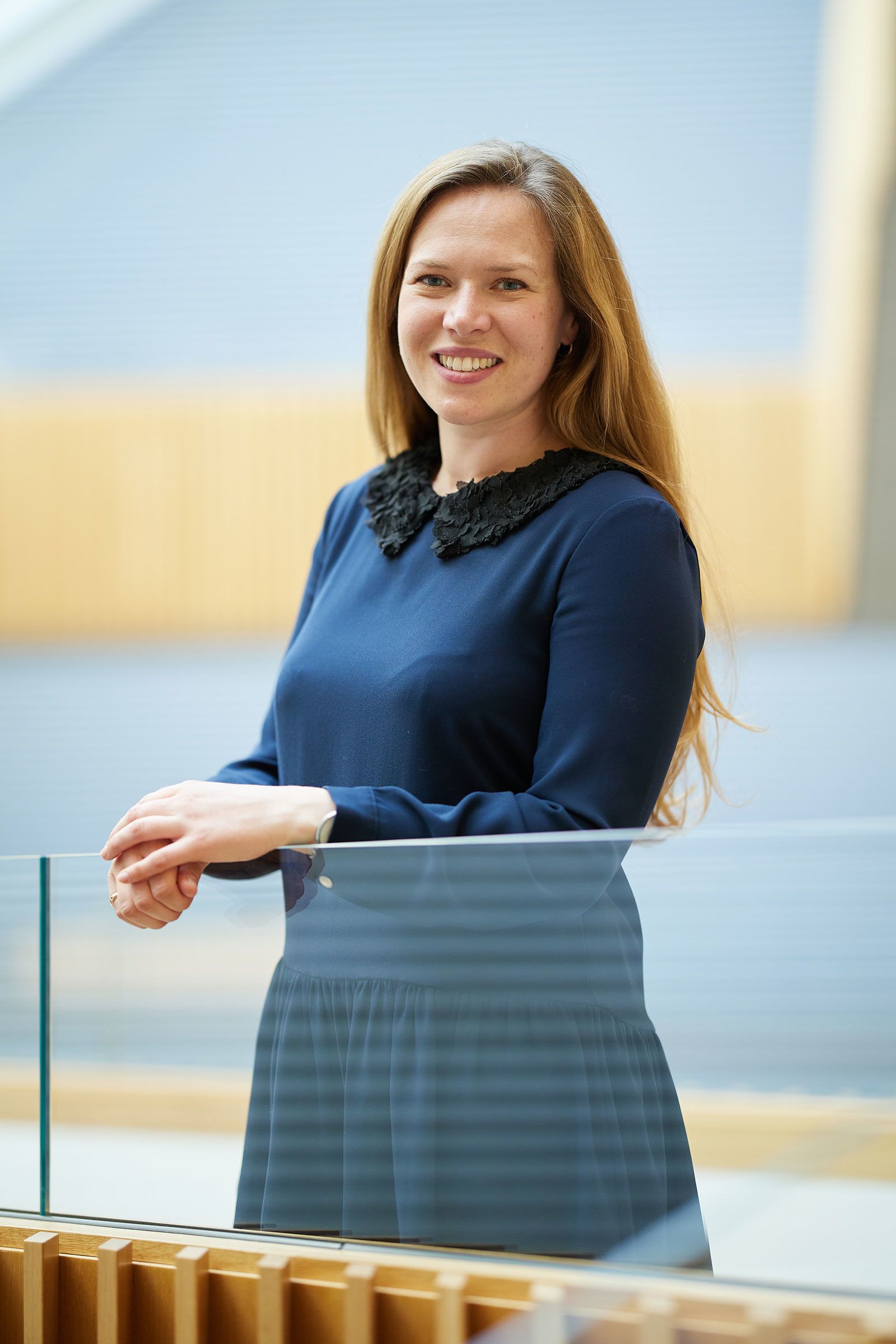
Alice Purkiss (Credit: Ian Wallman)
Alice Purkiss (Credit: Ian Wallman)
The partnership team is based at Oxford University, led by Alice Purkiss. ‘New research helps enrich people’s engagement with the National Trust,’ Purkiss explains. ‘It might lead to a surprising intervention or a completely new narrative that hasn’t previously been told at that site before.

Alice Purkiss (Credit: Ian Wallman)
Alice Purkiss (Credit: Ian Wallman)
"The charity’s places are sites of transience, they have deep and varied histories, but when you visit you might only encounter one story. The new research our collaboration supports helps unlock and deepen knowledge to provide more authentic and engaging experiences for visitors, staff and researchers alike."
With the focus on a set of shared research themes, activities include research placements and consultancy, conferences, theme development workshops, public lectures and events, PhD projects, student internships and staff training.
Activity on individual themes is often incremental. It might start with a workshop between National Trust staff and Oxford researchers, become the focus of a fellowship or student internship placement, then go on to become a large, joint research bid for external funding.
Themes are varied and interdisciplinary and therefore relevant to a wide range of staff and researchers across both institutions: from life writing, photography and histories of childhood, to global botanic collections and concepts of authenticity in historic houses, to name a few.
Helping the National Trust uncover new narratives - 101 Jobs that Change the World
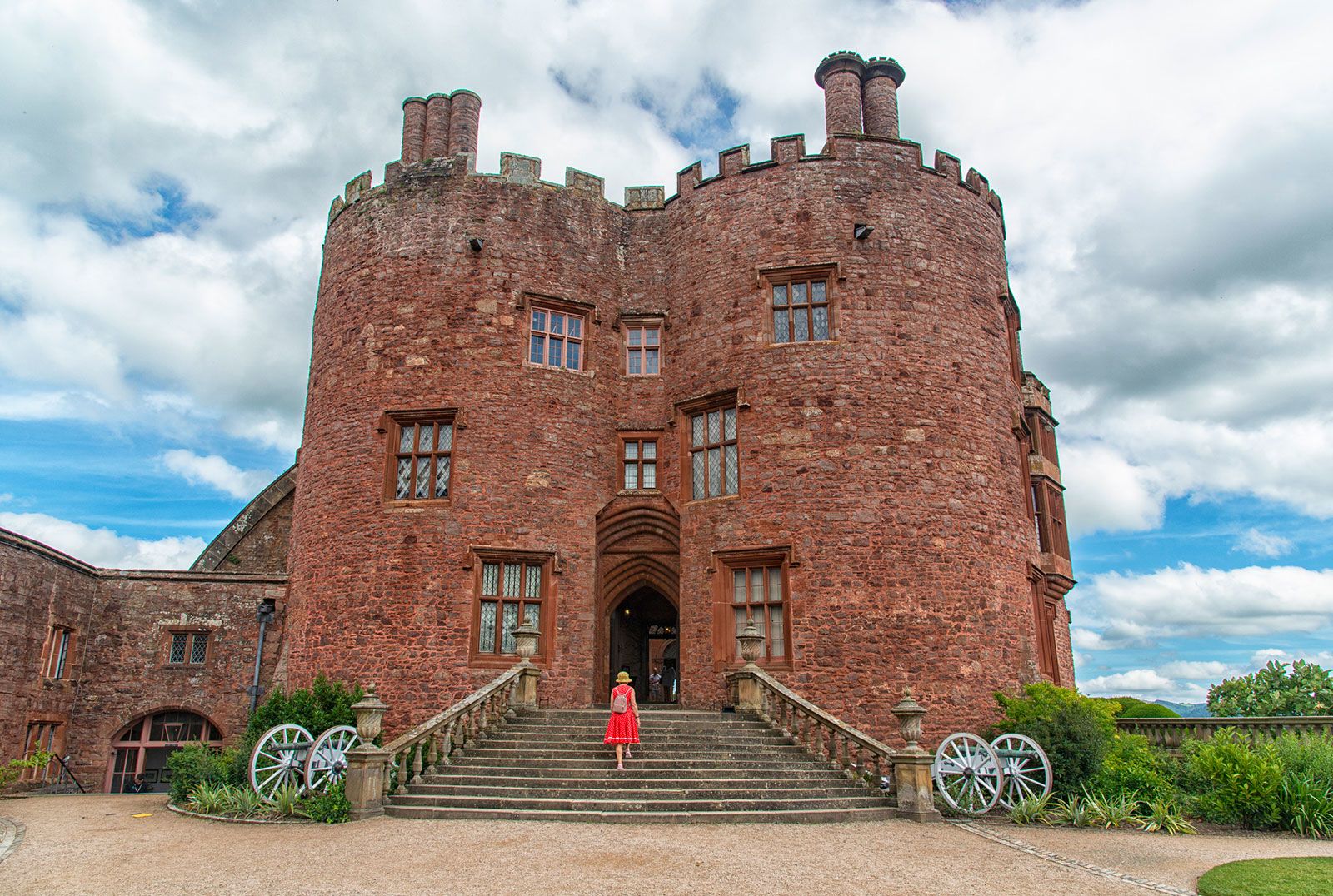
Powis Castle exterior (©National Trust Images/David Goacher)
Powis Castle exterior (©National Trust Images/David Goacher)
One example of this iterative methodology is the research, undertaken at Powis Castle in Wales, into the property’s Clive Museum. The museum houses the largest private collection of Indian artefacts in the UK, amassed during the British colonisation of India and housed in the castle in the early 19th century.
Beginning with a commissioned consultancy role undertaken by Dr Kieran Hazzard to research the collection, including its provenance and wider global connections, the collaboration expanded to include a Knowledge Exchange Fellowship in partnership with the Ashmolean Museum, a new PhD funded by the Arts and Humanities Research Council (AHRC), nineteen Oxford student intern placements, National Trust staff training, volunteer talks and new property-based interpretation, alongside academic publications and conference papers.
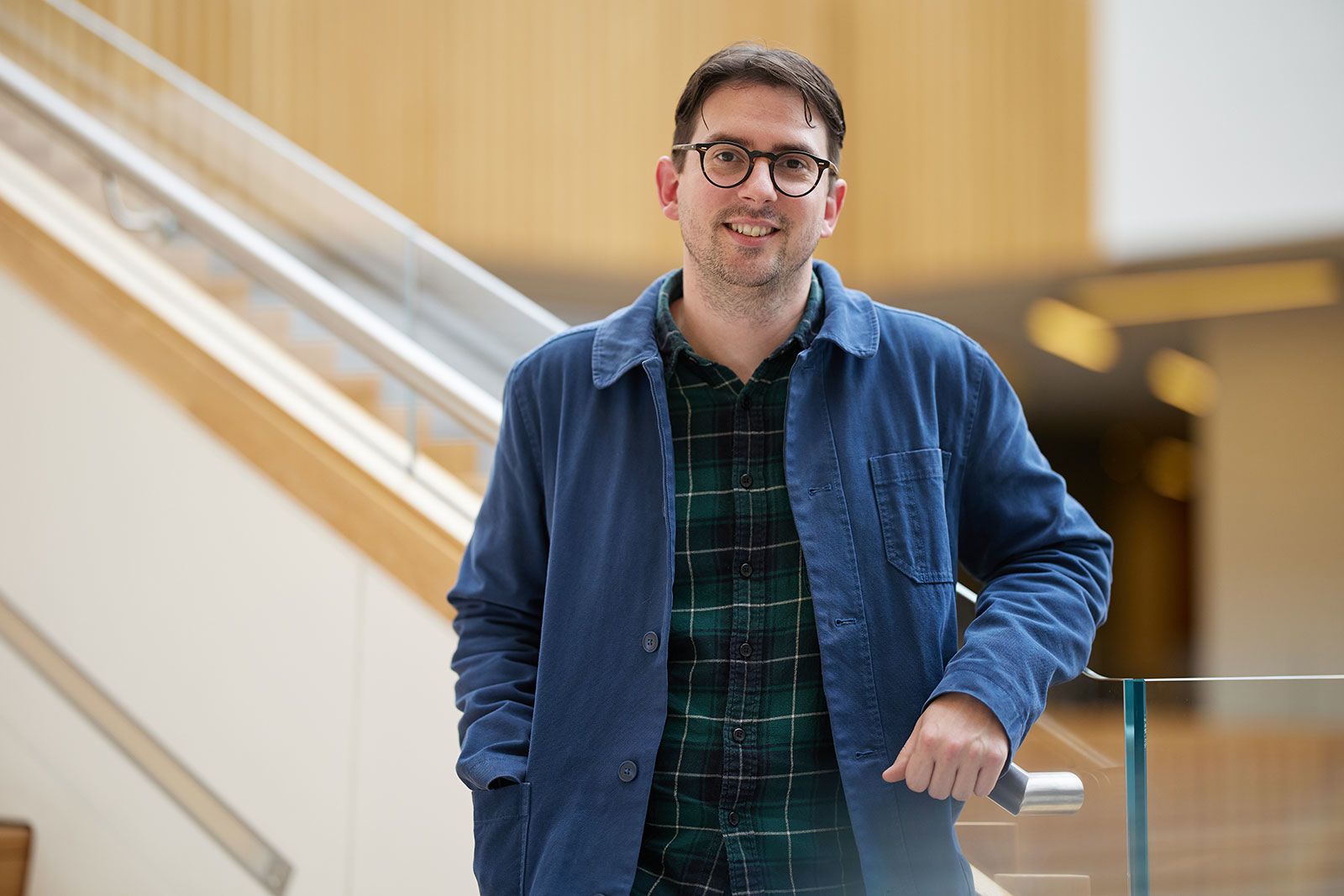
Dr Kieran Hazzard (Credit: Ian Wallman)
Dr Kieran Hazzard (Credit: Ian Wallman)
Combining archival research with a wider range of knowledge exchange activities, the collaboration has deepened understanding of the collection and its context while enhancing engagement with a broad range of audiences. This work is not only invaluable for allowing such objects to be researched and reinterpreted, it also provides undergraduate and postgraduate students with a unique opportunity to engage in archival research that has a real-world impact.
'Our researchers are given a fantastic opportunity to be involved in research that can make a major change in how staff, volunteers and visitors can better understand a property and its pieces.'
"It's rare to get an opportunity to get involved in research that is so widely accessible and improves the public's understanding, which is incredibly rewarding. For an academic, it also provided a very good opportunity to turn this research into a publication. I have a peer-reviewed article coming out this year on Robert Clive and his family as a direct result of the Powis research, which is obviously what academic staff strive for."
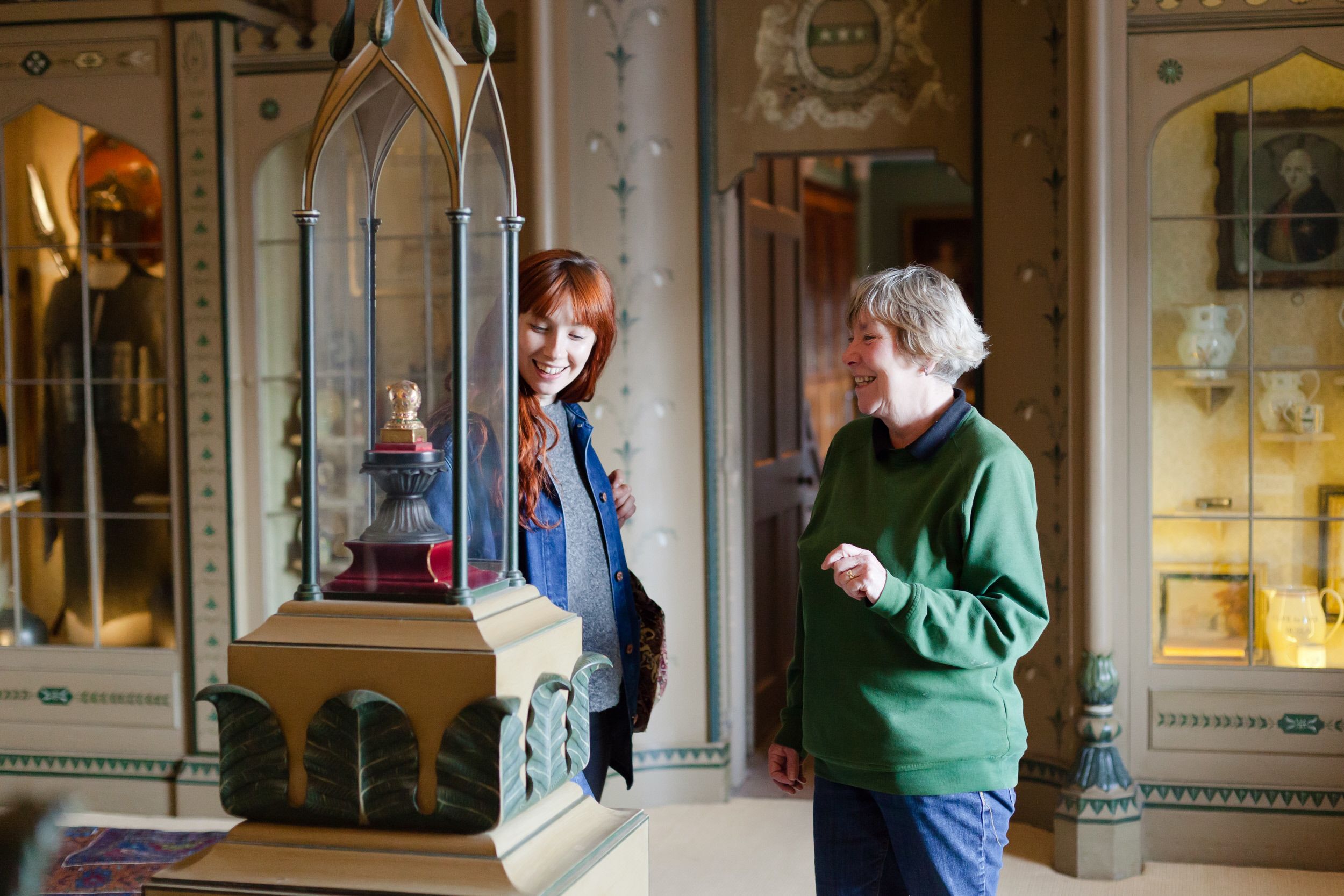
Dr Anita Weatherby, Head of Research at the National Trust, agrees that the opportunity to work with students and academic researchers underlines the opportunities the partnership opens at multiple levels in both organisations. In particular, the successful 'micro-internship' programme has offered students work experience placements and networking opportunities with National Trust staff while new research to support the charity’s curatorial work is undertaken.
‘One of the lovely things about the partnership is if there is an object that we don't know much about, but we think has an interesting history, we can have one of the fantastic Oxford students come in for a week,’ she says.
"The amount that the students can discover, working with our curators, is just phenomenal. They have turned up some really fascinating things about particular objects or the property as a whole. We can then turn that into a new interpretation to make people's visits more inspiring and dynamic through helping them explore the history of those objects and properties."
Close collaboration with the University of Oxford also delivers a major benefit for the National Trust which may not be as immediately evident to the public as a lecture series or improved visitor information, but which is nonetheless essential. The organisation is proud to have been named as an Independent Research Organisation by UKRI and Dr Weatherby maintains that creating space for new ideas to take shape underpins the organisation’s dedication to ongoing research.
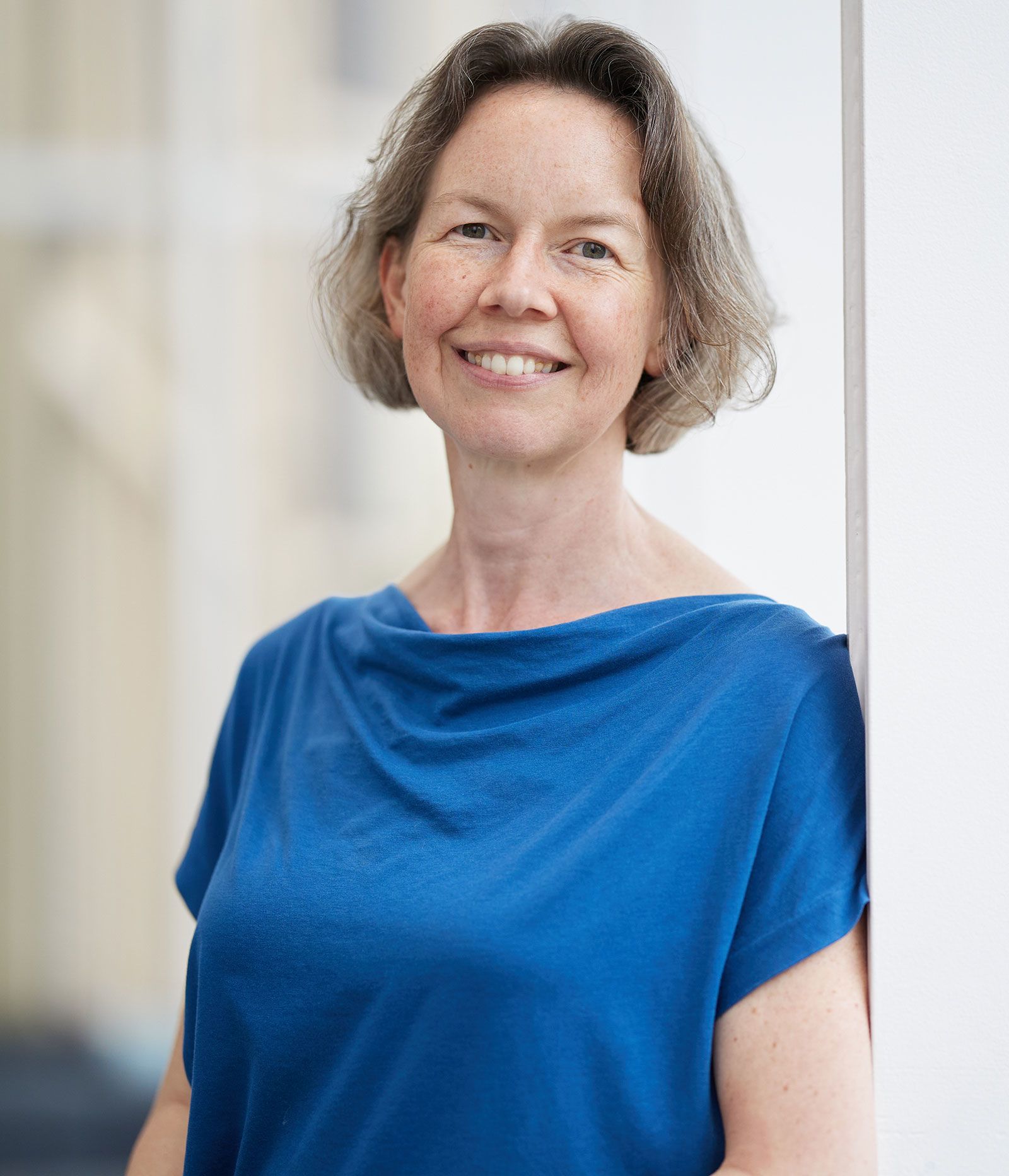
Dr Anita Weatherby (Credit: Ian Wallman)
Dr Anita Weatherby (Credit: Ian Wallman)
Dr Anita Weatherby, Head of Research at the National Trust, agrees that the opportunity to work with students and academic researchers underlines the opportunities the partnership opens at multiple levels in both organisations. In particular, the successful 'micro-internship' programme has offered students work experience placements and networking opportunities with National Trust staff while new research to support the charity’s curatorial work is undertaken.

Dr Anita Weatherby (Credit: Ian Wallman)
Dr Anita Weatherby (Credit: Ian Wallman)
‘One of the lovely things about the partnership is if there is an object that we don't know much about, but we think has an interesting history, we can have one of the fantastic Oxford students come in for a week,’ she says.
"The amount that the students can discover, working with our curators, is just phenomenal. They have turned up some really fascinating things about particular objects or the property as a whole. We can then turn that into a new interpretation to make people's visits more inspiring and dynamic through helping them explore the history of those objects and properties."
Close collaboration with the University of Oxford also delivers a major benefit for the National Trust which may not be as immediately evident to the public as a lecture series or improved visitor information, but which is nonetheless essential. The organisation is proud to have been named as an Independent Research Organisation by UKRI and Dr Weatherby maintains that creating space for new ideas to take shape underpins the organisation’s dedication to ongoing research.
"One of the real benefits of the partnership is it gives us the space to bring different people together and interact, to understand what we know from our research practice side and what's known from the more academic side of the University, and create space to really get ideas going together."
‘We've had the UKRI Independent Research Organisation status for the last few years and we're working to build our own expertise and capability. Working with University of Oxford is an important part of that for us, and the current focus of the partnership on co-developing joint research funding proposals will scale up the volume of research we can do together.’
It was this need for a space for genuinely collaborative working and co-creation that meant the University of Oxford was the perfect partner, Dr Weatherby says.
"We recognise the unique expertise that Oxford brings, the breadth of the work it does across the humanities. There's some really exciting work, particularly in heritage. The University brings a weight of expertise and an amazing partnership network. So, for us, it was a really positive opportunity to form a knowledge exchange partnership."
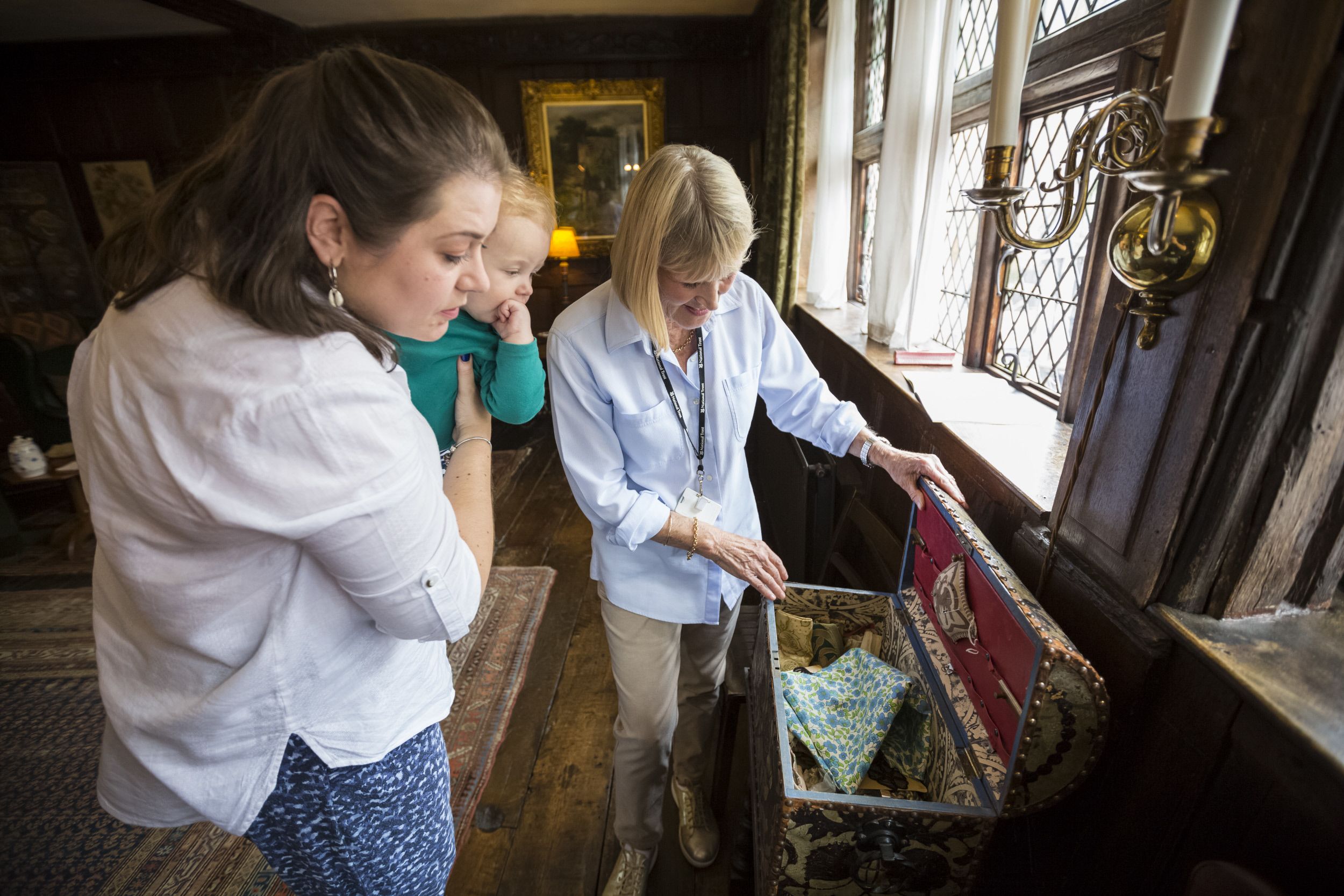
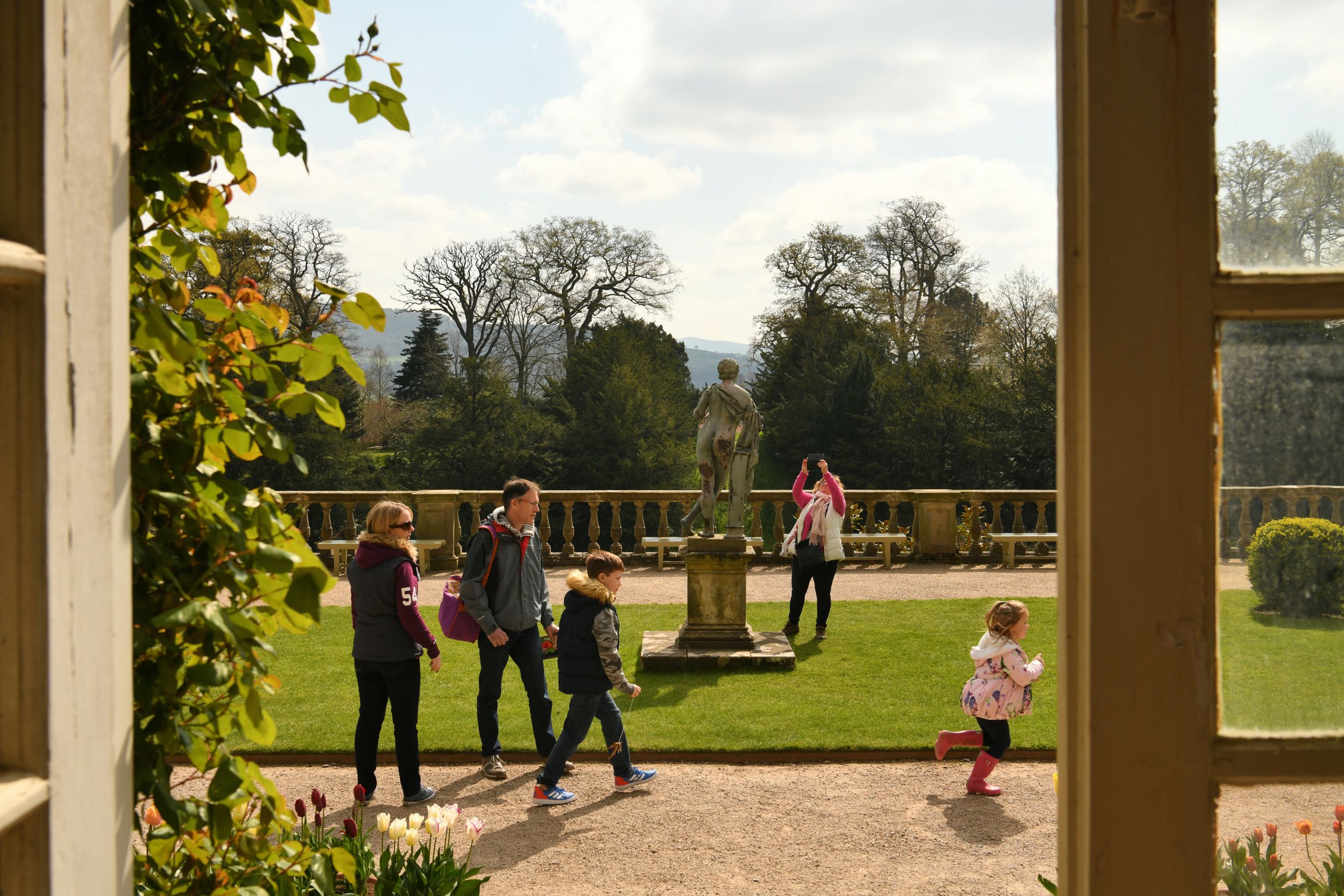
The collaboration grew out of the 'Trusted Source' Knowledge Transfer Partnership, which ran from 2016 to 2018. Funded by the National Trust, the AHRC and Innovate UK, Trusted Source was piloted as a means to bring academic research into the National Trust by connecting heritage professionals and university academics.
One of the first examples of a heritage and humanities project within a scheme traditionally focussed on innovation through industrial partnerships in the tech-transfer, business or engineering spheres, the project resulted in the creation of new public-facing web content and training opportunities for students and staff at both institutions.
Proving that innovation could be more than new technology, Trusted Source was featured as a case study in a UK Government Select Committee and the Mendoza Review of Museums in England and was graded 'A: Outstanding' by Innovate UK. The project's success also demonstrated the value of close collaboration between Oxford and the National Trust, providing strong foundations upon which the subsequent partnership has grown.

Professor Abigail Williams (Credit: Ian Wallman)
Professor Abigail Williams (Credit: Ian Wallman)
Professor Abigail Williams, Knowledge Exchange, Impact & Innovation Director for the Humanities at the University of Oxford, believes the National Trust Partnership is fascinating in the way it allows the National Trust to reimagine the stories its places and collections tell, while also tapping into current cultural conversations about how we view our history and how we live with it. This aspect proves innovation lies at the heart of the Humanities just as much as in those parts of the University which deal with technology transfer, she insists.
'Innovation is something that every researcher is committed to because they're dedicated to creating a new space for ideas which change the existing picture, or reshape the field,' she says.
"The innovation agenda we're working within now is the application of ideas to real world challenges. It's not only a shift to collaborating on new ideas, it’s also asking about how they play out in real world environments. Humanities has got a huge role to play in some of that: about what we do with our past; how we interpret it; and how we make it have meaning and relevance for contemporary audiences and contemporary users."
Now in its fourth year, the National Trust Partnership continues to develop and test new methods for sustainable and mutually beneficial collaboration between academia and the heritage industry, demonstrating that innovation is not reserved for science and engineering and that closer internal, interdisciplinary working can be supported through collaboration with external partners, whatever the sector.
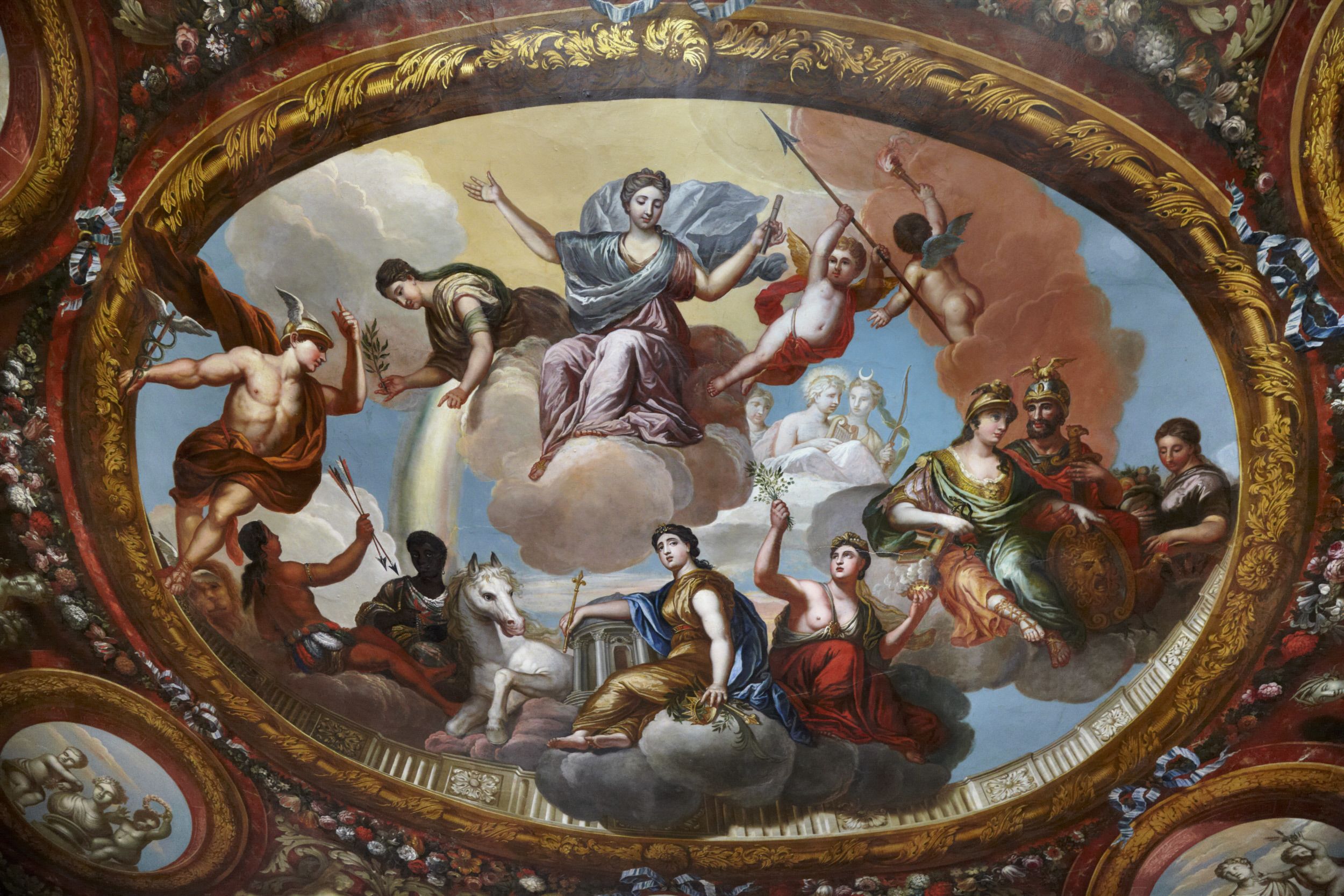
1,200+
people engaged with partnership activities and events
320+
NT staff trained through 22 research training sessions
140+
students have undertaken week-long ‘micro-internships’ on 60+ NT projects
50+
Trusted Source articles commissioned
25
academic institutions, 28 cultural institutions, and 19 industry consultants and independent practitioners engaged
6
Knowledge Exchange Fellowships funded in partnership with NT properties
Inspired by our innovators?
Get in touch with collaboration@admin.ox.ac.uk or visit https://www.ox.ac.uk/research/engage-with-us to see how we could help you make a difference.


